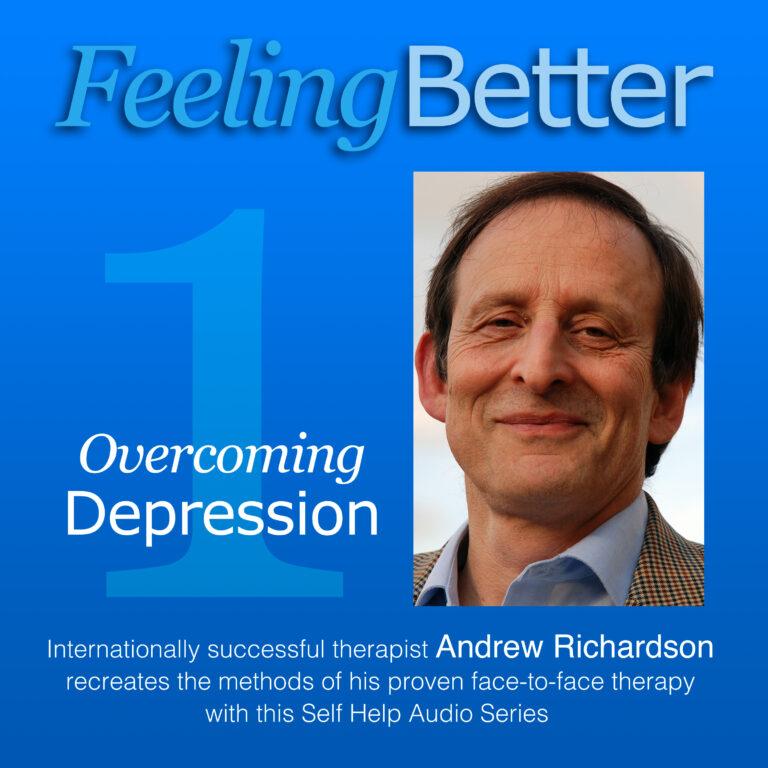Matthew describes depression
This is an email communication with Matthew (in January 2015) as he describes depression taking hold. I must stress that he has never been a client of mine. In some ways this makes his testimony even more powerful – as he brings to life from his personal experience the essential wisdom and insight of the Human Givens, for the understanding and treatment of depression..
Matthew
Hi again Andrew,
Please feel free to put out my message on your site. Everything you say about depression on your website, podcasts and YouTube channel makes perfect sense. I have a lot of questions about my depression that the NHS and indeed many online forums can’t answer, which I think only people who are trained in Human Givens truly understand and are able to give answers to. It seems to be one of the few schools that actually acknowledge human needs. I like the way your material has an explanation for everything associated with depression.
Matthew
Hi Andrew, I just would like to reflect on the human givens model of depression and show you my interpretation of it.
May I ask, once the core symptoms have set in, do they become a source of stress in their own right? Once the core symptoms start to have an impact on someone’s life, is it this that becomes a source of concern that leads to worries about never moving towards what they want in life, or perhaps about how much they’ve missed-out? Is it THIS that is the source of emotional arousal and REM sleep?
This is my understanding of what happens.
A Precipitating Situation A situation where a) a person’s needs are not met and b) they’re life’s going no where (for whatever reason; be it avoidance, in the case of social anxiety, discouragement, a sense of low self-esteem and defeat, reasons could be many). Whatever the ‘sticking factor’ is, the result is being stuck in an unhappy situation not moving any closer to where one wants to be. This becomes a source of worry, despair, and other negative emotions which soon results in excessive emotional arousal. This leads to tiredness and the core symptoms setting in.
B The symptoms themselves become a source of worry, a further roadblock to change.
- When depression has set in, tiredness and apathy have tightened their grip, making any course of evasive action feel almost impossible or overwhelming.
- Then comes an awareness of how life’s passing by, how difficult any form of action is that could move one closer to where they want to be in life.
- This then becomes a source of frightening and depressing thoughts about life being the same forever, never getting to where one wants to be in life (be it socially, job wise or anything else related to needs). This causes excess emotional arousal or sleep disturbance.
- Back to square one at B.
Is this what’s happening?
Andrew
Hello again Matthew,
The answer to your question is yes emphatically. Depression deepens from a self feeding vicious circle. And your description of depression is also pretty well how it is for most people. Of course for some there is no obvious precipitating cause but it has been a chronic situation over many years – where a life is not working and cannot apparently be fixed. It is also true in my experience that sometimes an early experience of depression can be so traumatic that anything that even vaguely resembles it in the future triggers a depression once again.
Andrew
Matthew
Hi Andrew thanks for the reply.
The previous experience of depression in itself can be traumatic? The whole experience of having no energy, zest, motivation, drive etc.? Is it the distress that these symptoms cause that is a source of stress?
Anyway I have two further questions.
I know how the human givens model explains that depression is caused by worrying, which causes emotional arousal. What I want to ask is, what’s the typical content of the worrying? Do a lot of the worries revolve around being stuck, the thought of never getting to where one wants to be in life, thoughts about how much they’re missing-out on life, have missed-out?
Here is some of the ways my last experience of depression sabotaged me and cause me additional stress. For some weird reason, I cannot find much information on the net relating to these experiences. These are some of the ways in which I having no energy, interest or drive caused me stress and undermined me. My second question is; do any other people have similar experiences? Does a lot of the worrying result from similar situations to what I’m about to describe?
When the thought of change becomes a source of stress
When in the grip of depression, run-down, no drive to do anything; thinking about WHAT you have to do to get in a better place can feel overwhelming, discouraging and depressing; and can lead to thoughts about the situation being forever. When paralysed by depression, thinking about WHAT you need to do to make changes, without seeing a way to loosen the symptoms to a degree that’s not so paralysing, how you can get the energy needed to effect change; can just be another source of stress and worry.
If one is in that situation, Human Givens explanation gives HOPE that it’s possible to loosen the grip of these disabling symptoms, which will eventually make such change possible and manageable. I also think that the above situation is especially bad if there is no support.
The worry about what others will think of inactivity/effect depression is having
Not only that, when those two core symptoms; fatigue and lack of motivation, have set in and have started to affect your life, you’ve got to put up with the possibility of people around you looking down on you, or even criticizing you as lazy. These two evil monsters can destroy your capacity to take on responsibility and reduce your capacity for activity. The last thing you need is to be looked down on or PUNISHED for being depressed. If someone’s got a cold or a twisted ankle, they get some sympathy.
Maybe this is one thing that partly explains why depressed people often have low self-esteem (It certainly didn’t do my self esteem much good when I experienced this).
It can also make you feel like you’re useless
When you have no drive or energy, and can barely manage anything, it can make you feel inferior to all those seemingly busy people around you. It can make you lose faith in your skills, talents or abilities and can make you feel like a waste of space. Again, I think this is another thing that can destroy someone’s self-esteem.
It can cause you to avoid things that are demanding/afraid of them
If for example, you’re unemployed, or single and you get depression, the symptoms can make everything seem impossible and undermine your confidence to such a degree that it can cause you to avoid those things, for fear that you might not be able to cope. There is for example, the fear that, due to your tiredness, you wouldn’t be able to keep a job.
Last time I experienced depression was when I was unemployed. It caused me to AVOID seeking work, for FEAR that I wouldn’t be able to cope, that I wouldn’t have the energy. It was an OVERPOWERING fear. This is just one more way depression can sabotage your life.
Of course, the consequences of such avoidance (if no way is found to face the above fear) just becomes another source of gnawing stress when in that situation, about being there forever.
Conclusion
All of this spiraling comes out from just two symptoms; lack of drive, and lack of energy. The Human Givens model is right. It’s the only model that makes sense to what I’ve experienced.
I must say the videos on the YouTube channel ‘depression optimist’ really are quite refreshing, especially the analogy with illness and the twisted ankle.
Thanks in advance
From Andrew
Hi Matthew,
This is an authentic and accurate explanation of how a depression unfolds for so many people. For some, details will be different in my experience as a Human Givens practitioner, but the overall picture you describe is spot on. It becomes a self feeding vicious circle and you describe that perfectly – as far as I can see. And for the large majority, this is their experience too.

MY TESTIMONIALS
Inspirational
Extended
Depression
Anxiety
CASE STUDIES
Depression
Anxiety
Addiction
Relationships
Anger
Matthew’s great insights are quoted at length in my Overcoming Depression Breakthrough Audio Prograamme.
Find out more by clicking on the image.
